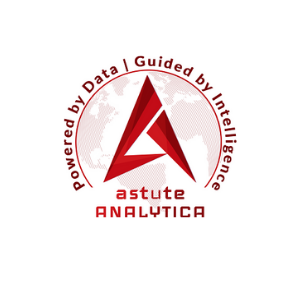Blockchain
OCEANPEC announces partnership with ADNOC, Cuallix Bank ahead of WRO ecosystem launch

 Reading Time: 2 minutes
Reading Time: 2 minutes
The World Resource Organization (WRO) was established by OCEANPEC (Singapore) to build an all-inclusive blockchain ecosystem that will combine finance, resources and high-technology services all under one roof. Ahead of the ecosystem launch in May 2019, OCEANPEC is pleased to announce that it has signed partnerships with two prestigious companies in the resource and finance sectors: Abu Dhabi National Oil Company (ADNOC) and Cuallix Bank. Partnering these two well-recognized entities will be a tremendous boost in strengthening the WRO global network.
OCEANPEC’s business operations currently focus on the import and export of Liquefied Natural Gas (LNG) and other energy commodities. Other corporate areas include oil refining, natural gas sales, power stations, wholesale of oil products, and energy equipment manufacturing. To date, OCEANPEC has 10 local offices working on natural gas, crude oil, precious metals and gemstones in Mainland China, Singapore, Hong Kong, Mongolia, South Korea, United States(Houston), North America (Mexico), Middle East (Abu Dhabi), Australia (Darwin), and Switzerland.
As its business needs are rapidly expanding, OCEANPEC has been looking into how to adapt and adopt blockchain technology into its core business functions. This technological shift towards blockchain is extremely important in the oil and energy sector, which involves resources, financing and the need for high-level security. As the WRO ecosystem was created to encompass these functions, having ADNOC and Cuallix Bank — both leaders in the oil and finance sectors — on board will prove to be an asset.
This is especially more so as the WRO intends to integrate crude oil, LNG, gasoline and diesel settlement into its ecosystem by Q3 2019.
ADNOC is state-owned, and the largest crude oil company in the United Arab Emirates. It also provides world-class shipping, maritime, port, logistics and oil field services to international customers. In the resource industry, which includes the likes of OCEANPEC and ADNOC, the blockchain technology will come in handy for logistics and raw material procurement departments, for example. Through the use of blockchain technology’s smart contracts which are decentralised and transparent, electronic evidence and data (such as invoices, purchase records, bills of lading) transmission/storage, supply chain management, goods and authentication can be processed in the WRO ecosystem. With the support of ADNOC coming on board, this will encourage other oil and energy giants to be part of the WRO ecosystem.
Cuallix Bank, based in the United States, is the first financial services organization to collaborate with Ripple (XRP), another blockchain company, to offer cross-border payments between America and Mexico. Having Cuallix Bank as a partner will definitely help build a robust payment and cross-border remittance infrastructure in the WRO ecosystem. With blockchain technology, all financial transfers in the resources industry will be made swifter, traceable, and at lower transaction costs.
As part of its vision, the World Resource Organization will continue to work to build on more relevant partnerships to scale up its ecosystem for global users and investors.
SOURCE World Resource Organization
Blockchain
Simplify Labs Expands Educational Outreach with Monthly Crypto Webinars
Blockchain
Blocks & Headlines: Today in Blockchain – May 21, 2025

In an era defined by rapid innovation and regulatory shifts, today’s blockchain briefing spotlights five pivotal developments: enterprise-grade data integration, municipal crypto pilots, state-level policy hearings, AI-powered token growth, and secure communications on a public ledger. Across these stories, three key trends emerge:
-
Enterprise Adoption & Data Integration
-
Government Experimentation & Oversight
-
AI & Security Innovations in Crypto
Below, we dissect each story’s essence, unpack its broader implications, and offer opinion-driven insight for Web3 stakeholders.
1. Space and Time Joins Forces with Microsoft Fabric
Source: Chainwire / The Defiant
On May 20, 2025, Space and Time Labs (SXT)—a zero-knowledge data platform backed by Microsoft’s M12 Ventures—announced integration of its multichain index (Bitcoin, Sui, Ethereum) into Microsoft Fabric’s OneLake environment. This partnership delivers real-time, verifiable blockchain data directly within Azure, enabling developers and enterprises to build data-driven Web3 and AI applications without custom pipelines.
Opinion: Embedding verifiable on-chain data into mainstream analytics tools marks a watershed moment. As traditional enterprises crave decentralized insights, Fabric’s native access to SXT’s ZK-proven data could accelerate blockchain analytics, foster hybrid cloud-Web3 solutions, and reduce vendor lock-in. Expect more legacy tech giants to pursue similar alliances.
2. New York City Eyes Crypto for Taxes & Records
Source: DL News
Mayor Eric Adams revealed plans to form a Digital Assets Advisory Council to explore crypto-based payments for municipal services, including taxes, birth/death certificates, and land records. While specifics remain under wraps, Adams highlighted zero-knowledge proofs as a privacy-preserving tool for public documentation on distributed ledgers.
Opinion: New York’s initiative signals growing municipal appetite for blockchain beyond investments. By potentially accepting tax payments in crypto and securing vital records on-chain, NYC could pioneer use cases that blend transparency with privacy. However, pilot programs must rigorously address volatility, regulatory compliance, and digital inclusion to avoid disenfranchising underserved communities.
3. Wyoming Committee Explores Blockchain, AI & Right-to-Repair
Source: Wyoming Public Media
During its first interim meeting (May 14–15, Jackson Hole), Wyoming’s Select Committee on Blockchain, Financial Technology and Digital Innovation reviewed the state’s proposed Wyoming Stable Token—tethered 1:1 to USD—and examined AI governance and right-to-repair legislation. The Stable Token Commission anticipates a July 4 alpha launch, while lawmakers debated CBDC distinctions, tokenized real-world assets, and consumer repair rights.
Opinion: Wyoming continues to cement its reputation as a blockchain haven. Explicit carve-outs distinguishing stablecoins from CBDCs, coupled with regulatory sandboxes for AI and repair laws, underscore a holistic approach to innovation. Other states should monitor Wyoming’s alpha testing outcomes to inform balanced policy frameworks that nurture Web3 while safeguarding consumer interests.
4. AI Tokens Surge in Crypto’s New Tango
Source: The Economic Times
Himanshi Lohchab reports that AI-centric utility tokens—built to autonomously execute services like compute renting (Render), predictive analytics (SingularityNET), and data marketplaces (Ocean Protocol)—have seen market caps soar from $2.7 billion to nearly $30 billion within a year. Key players include Near Protocol’s AI modules, ICP, The Graph, and emerging AI agents that generate revenue per usage. Institutional interest from Grayscale, BlackRock, and Fidelity further validates the trend.
Opinion: The AI-blockchain convergence is no fleeting fad. AI tokens promise programmable revenue streams and decentralized toolchains, but they also introduce autonomous risk vectors—buggy smart contracts, accountability gaps, and regulatory ambiguity. Security audits, standardized interoperability protocols, and clear legal frameworks will be crucial to sustain investor confidence.
5. BSV Association Selects Binarii Labs for Secure Communications
Source: CoinGeek (via PRNewswire)
The BSV Association has designated Binarii Labs to implement BinariiDSM, an encrypted file exchange and messaging suite that logs proofs of record on the BSV blockchain. This integration ensures immutable audit trails, data resilience, and end-to-end confidentiality for enterprises seeking verifiable trust without centralized intermediaries.
Opinion: As data privacy regulations tighten globally, blockchain-anchored communication platforms like BinariiDSM offer a compelling alternative to legacy VPNs and secure email. By immutably recording metadata on-chain, organizations can demonstrate compliance, simplify audits, and deter insider threats. Look for BSV’s secure-messaging model to inspire similar offerings on other smart-contract platforms.
Conclusion: Navigating a Dynamic Blockchain Frontier
Today’s stories reaffirm that blockchain is no longer an experimental niche—it’s permeating analytics, public services, legislative agendas, tokenomics, and secure communications. To thrive:
-
Forge Strategic Alliances: Enterprises should partner with ZK and data-fabric innovators to embed blockchain insights into their analytics stacks.
-
Pilot Pragmatically: Municipalities must balance visionary crypto use cases with compliance, volatility management, and equitable access.
-
Craft Balanced Policy: States can emulate Wyoming’s sandbox approach—distinguishing stablecoins from CBDCs, while addressing AI and repair rights.
-
Secure the Autonomous Agent Era: As AI tokens multiply, enforce rigorous security audits and interoperability standards.
-
Leverage On-Chain Trust: Consider blockchain-anchored communications for immutable audit trails and enhanced data resilience.
By embracing these actions, organizations and policymakers can harness blockchain’s transformative power while mitigating emerging risks.
The post Blocks & Headlines: Today in Blockchain – May 21, 2025 appeared first on News, Events, Advertising Options.
Blockchain
Hair Transplant Market To Worth Over US$ 41.01 Billion By 2033 | Astute Analytica
-

 Blockchain7 days ago
Blockchain7 days agoBDM Digital Initiates Promising Dialogue with Stanford Law School in Pursuit of Strategic Partnerships in Silicon Valley
-

 Blockchain7 days ago
Blockchain7 days agoBlocks & Headlines: Today in Blockchain – May 15, 2025 (BTC’s Push, Pi Network Fund, Stablecoin Levers, JPM Pilot, OKX × Man City)
-
Blockchain7 days ago
Wen Acquisition Corp Announces the Pricing of $261,000,000 Initial Public Offering
-
Blockchain6 days ago
Mercurity Fintech’s Subsidiary Grows Cross-Border Business Advisory Services with New Asia-Pacific Healthcare Client Engagement
-

 Blockchain6 days ago
Blockchain6 days agoSaudi Arabia Loan Aggregator Market Report 2025: Retail Digital Payments Hit 70% as Tech Adoption Transforms Saudi Financial Services – Competition, Forecast & Opportunities to 2030
-

 Blockchain6 days ago
Blockchain6 days agoBlocks & Headlines: Today in Blockchain – May 16, 2025
-

 Blockchain Press Releases3 days ago
Blockchain Press Releases3 days agoCoinW Unveils Industry-First Futures Protection Program:Instant Refunds Designed to Safeguard Traders
-

 Blockchain3 days ago
Blockchain3 days agoBlocks & Headlines: Today in Blockchain – May 19, 2025 | DoubleZero, Toobit, Story Protocol, Marco Polo, Argo Blockchain



































